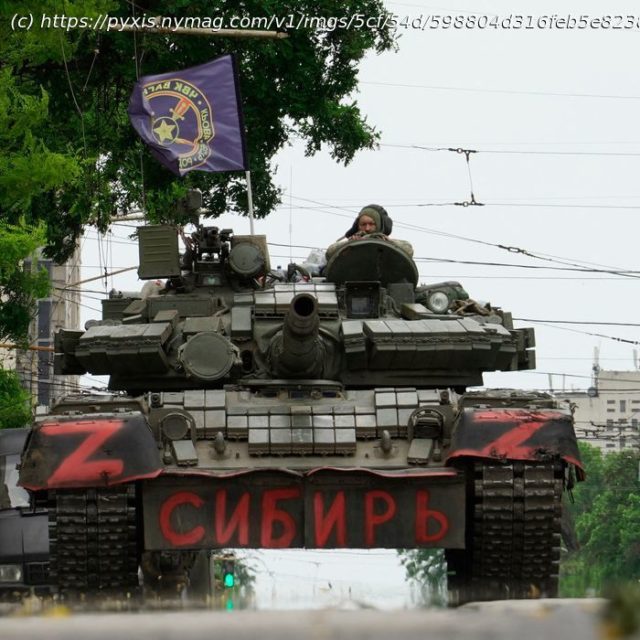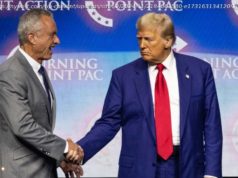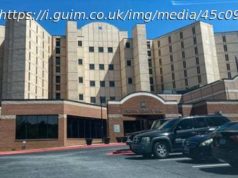All hell is broke loose in Russia over the weekend after an armed mutiny by Wagner Group leader Yevgeniy Prigozhin, whose forces marched on and nearly reached Moscow. Here is the latest commentary and news.
An unprecedented uprising took place over the weekend in Russia, where the leader of the Wagner Group mercenaries, Yevgeny Prigozhin, briefly led a mutiny against the Russian military and seemingly brought the country to the brink of civil war. Wagner forces seized military facilities in the southern city of Rostov-on-Don and advanced to within 120 miles of Moscow on Saturday before Prigozhin — who had apparently been planning the offensive for some time — abruptly backed down after cutting a deal with the Kremlin which included him accepting exile to Belarus. The Russian military seemed unwilling or unable to stop the Wagner forces, and Vladimir Putin, who publicly vowed to crush the rebellion in a national address, ultimately backed down as well. The dramatic crisis has called into question the strength of Putin’s grip on power as well as the stability of the Russian state, and it’s not clear what will happen next. Below are updates and commentary on this still-developing situation.
What the pundits and Russia experts are saying
Tatiana Stanovaya, senior fellow at the Carnegie Russia Eurasia Centre, argues on Twitter that Prigozhin got in over his head:
Prigozhin’s rebellion wasn’t a bid for power or an attempt to overtake the Kremlin. It arose from a sense of desperation; Prigozhin was forced out of Ukraine and found himself unable to sustain Wagner the way he did before, while the state machinery was turning against him. To top it off, Putin was ignoring him and publicly supporting his most dangerous adversaries.
Prigozhin’s objective was to draw Putin’s attention and to impose a discussion about conditions to preserve his activities — a defined role, security, and funding. These weren’t demands for a governmental overthrow; they were a desperate bid to save the enterprise, hoping that Prigozhin’s merits in taking Bakhmut (that’s why he needed it!) would be taken into account and the concerns would catch Putin’s serious attention. Now it appears that these merits helped Prigozhin to get out of this crisis alive, but without a political future in Russia (at least while Putin is in power).
She also adds that Prigozhin “was caught off-guard by Putin’s reaction and found himself unprepared to assume the role of a revolutionary,” thus necessitating the sudden about face on Saturday. And while the events struck a “severe blow” to Putin and his regime, it’s not the end of their world, either:
Putin and the state have been dealt a severe blow (which will have significant repercussions for the regime). However, I want to emphasize that image has always been a secondary concern for Putin. Setting optics aside, Putin objectively resolved the Wagner and Prigozhin problem by dissolving the former and expelling the latter. The situation would have been far worse if it had culminated in a bloody mess in the outskirts of Moscow. And no, Putin doesn’t need Wagner or Prigozhin. He can manage with his own forces. He’s now certainly convinced of that.
Analysts at The Institute for the Study of War stressed multiple major takeaways in their assessment following the end of the offensive, and none of them reflected well on Russia’s government and military:
The Kremlin now faces a deeply unstable equilibrium. The Lukashenko-negotiated deal is a short-term fix, not a long-term solution, and Prigozhin’s rebellion exposed severe weaknesses in the Kremlin and Russian MoD. Suggestions that Prigozhin’s rebellion, the Kremlin’s response, and Lukashenko’s mediation were all staged by the Kremlin are absurd. The imagery of Putin appearing on national television to call for the end of an armed rebellion and warning of a repeat of the 1917 revolution — and then requiring mediation from a foreign leader to resolve the rebellion — will have a lasting impact.
The rebellion exposed the weakness of the Russian security forces and demonstrated Putin’s inability to use his forces in a timely manner to repel an internal threat and further eroded his monopoly on force. Prigozhin’s rapid drive towards Moscow ridiculed much of the Russian regular forces — and highlighted to any and all security figures, state-owned enterprises, and other key figures in the Russian government that private military forces separate from the central state can achieve impressive results. Wagner’s drive also showcased the degradation of Russia’s military reserves, which are almost entirely committed to fighting in Ukraine, as well as the dangers of reliance on inexperienced conscripts to defend Russia’s borders.
The Kremlin struggled to respond quickly in the information space and residents in Rostov-on-Don residents did not oppose Wagner and in some cases greeted them warmly — not inherently demonstrating opposition to Putin but at minimum acceptance of Prigozhin’s actions. Finally, the Kremlin’s apparent surprise at Prigozhin’s move does not reflect well on Russia’s domestic intelligence service, the FSB. Prigozhin consistently escalated his rhetoric against the Russian MoD prior to his armed rebellion and Putin failed to mitigate this risk. We cannot and will not speculate on the concrete impacts of Prigozhin’s rebellion and the Kremlin’s weak response and are not forecasting an imminent collapse of the Russian government, as some have done. Nonetheless, Prigozhin’s rebellion and the resolution of the events of June 23 and 24 — though not necessarily the Prigozhin/Kremlin struggle writ large — will likely substantially damage Putin’s government and the Russian war effort in Ukraine.
At The Atlantic, Anne Applebaum argues that Putin’s encouragement of political apathy in Russia is backfiring, and “the flimsiness of this regime’s ideology and the softness of its support have been suddenly laid bare”:
In the evening, after Prigozhin had decided to stand down and go home (wherever home turns out to be), he drove away in an SUV with crowds filming him on their cellphones and cheering him on, as if he were a celebrity leaving a movie premiere or a gallery opening. Some chanted “Wagner! Wagner!” as the troops emerged into the street. This was the most remarkable aspect of the whole day: Nobody seemed to mind, particularly, that a brutal new warlord had arrived to replace the existing regime—not the security services, not the army, and not the general public. On the contrary, many seemed sorry to see him go. …
[N]obody tried to stop the Wagner group in Rostov-on-Don, and hardly anybody blocked the Wagner convoy on its way to Moscow. The security services melted away, made no move and no comment. The military dug some trenches around Moscow and sent some helicopters; somebody appears to have sent bulldozers to dig up the highways, but that was all we could see. Who will respond if a more serious challenge to Putin ever emerges?
Financial Times columnist Gideon Rachmann writes that Putin is clearly losing a “two-front struggle”:
The Prigozhin rebellion is over for now. But it would be futile to believe that things can go back to normal in Russia. The reality is that there is no normal to go back to. The uprising happened because the Putin project is falling apart. That process is likely to accelerate after the events of this weekend. It is now clear that Putin faces a two-front struggle for survival.






